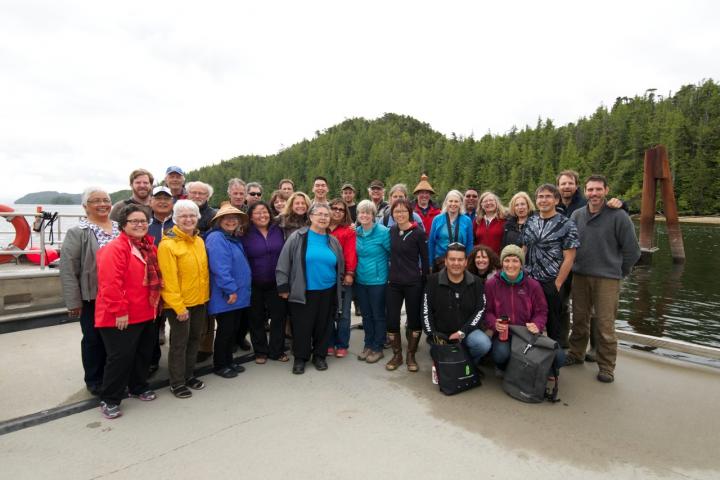
Credit: Ilja Herb
A new study highlights the need to engage Indigenous communities in managing sea otter population recovery to improve coexistence between humans and this challenging predator.
The sea otters’ recovery along the northwest coast of North America presents a challenge for coastal communities because both otters and humans like to eat shellfish, such as sea urchins, crabs, clams and abalone. Expanding populations of sea otters and their arrival in new areas are heavily impacting First Nations and Tribes that rely on harvesting shellfish.
SFU lead author Jenn Burt says the study focused beyond the challenges to seek solutions going forward. “We documented Indigenous peoples’ perspectives which illuminated key strategies to help improve sea otter management and overall coexistence with sea otters.”
Most research focuses on how sea otter recovery greatly reduces shellfish abundance or expands kelp forests, rather than on how Indigenous communities are impacted, or how they are adapting to the returning sea otters’ threat to their food security, cultural traditions, and livelihoods.
Recognizing that Indigenous perspectives were largely absent from dialogues about sea otter recovery and management, SFU researchers reached out to initiate the Coastal Voices collaboration.
Coastal Voices is a partnership with Indigenous leaders and knowledge holders representing 19 First Nations and Tribes from Alaska to British Columbia.
Based on information revealed in workshops, interviews, and multiple community surveys, SFU researchers and collaborating Indigenous leaders found that human-otter coexistence can be enabled by strengthening Indigenous governance authority and establishing locally designed, adaptive co-management plans for sea otters.
The study, published this week in People and Nature also suggests that navigating sea otter recovery can be improved by incorporating Indigenous knowledge into sea otter management plans, and building networks and forums for community discussions about sea otter and marine resource management.
“Our people actively managed a balanced relationship with sea otters for millennia,” says co-author and Haida matriarch Kii’iljuus (Barbara Wilson), a recent SFU alumnus.
“Our work with Coastal Voices and this study helps show how those rights and knowledge need to be recognized and be part of contemporary sea otter management.”
Anne Salomon, a professor in SFU’s School of Resource and Environmental Management, co-authored the study and co-led the Coastal Voices research partnership.
“This research reveals that enhancing Indigenous people’s ability to coexist with sea otters will require a transformation in the current governance of fisheries and marine spaces in Canada, if we are to navigate towards a system that is more ecologically sustainable and socially just,” says Salomon.
Despite challenges, the authors say transformation is possible. They found that adaptive governance and Indigenous co-management of marine mammals exist in other coastal regions in northern Canada and the U.S. They suggest that increasing Indigenous leadership and Canadian government commitments to Reconciliation may provide opportunities for new approaches and more collaborative marine resource management.
###
Media Contact
Melissa Shaw
[email protected]
Original Source
https:/
Related Journal Article
http://dx.




